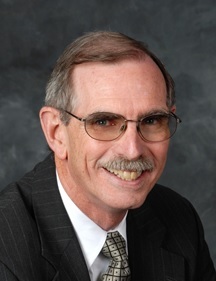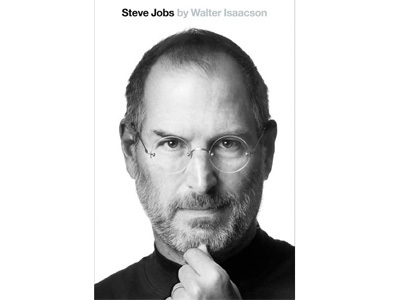October 5th marks the fourth anniversary of the passing of Steve Jobs. Although he is no longer with us, few business leaders have had more influence on the shape of our day-to-day lives. A mere ten years ago, there were no iPhones or iPads. There were no apps, and the Internet was something you could only access if you were sitting at a computer. None of us a decade ago understood what it meant to be part of a hyper-connected world where we could be available to each other anytime, anyplace. Jobs, however, had a clear picture of the human potential that could be unleashed if we could find a way to continually connect everyone on the planet.
When Jobs returned to Apple for his second stint as its CEO, this picture became his company's compelling purpose, reflected in a bold mantra to "think different." This purpose served as the platform for the remarkable turnarounds of both his company and his reputation, as Apple catapulted to the top tier of the Fortune 500 and Jobs was being lauded in the business press as the most admired CEO of his time. While these were indeed outstanding accomplishments, perhaps Jobs' greatest legacy -- and what we will remember most -- is how, in such a short time, his vision became everyone's reality, thanks in large measure to the amazing company he built.
A Flawed Hero
In a few days, the second movie since Jobs' passing will open in theaters around the globe. It will attempt to help us better understand both the person and the company that literally changed the world as we have known it. Jobs is an interesting character study because, while being perhaps the most successful business leader in the brief history of the early twenty-first century, Jobs was clearly a flawed hero. He had an artist's temperament that could morph back and forth between charming engagement and mercurial rants. His intense passionate perfectionism made him a difficult person to work for; yet he was nevertheless admired and even loved by people who deeply believed that to be a part of Apple was to be a part of something special. Steve Jobs was a hero, not only to the people who worked for him, but also for all the people whose lives were transformed by the products he and his company created. Even though his customers never met him, much like the passing of a popular political leader or a celebrated entertainer, they felt connected to him and knew they would miss him.
Like all heroic leaders, Steve Jobs was larger than life. He had the wherewithal to not only singularly transform the company he returned to, but more impressively, the world he lived in. However, the transformation he enabled could very well mark the end of a long-standing leadership paradigm. Steve Jobs, in a way, is the personification of an inflection point in human history, which is why he is, in all likelihood, the last heroic leader. While he, himself, was dominant and autocratic, the products he created will make it difficult, in not impossible, to exercise this style of leadership in businesses in the future. That's because Apple's products have radically altered the dynamics of the way power works. In a hyper-connected world, power is derived from being connected rather than being in charge, which means the most effective leaders in this new world are collaborators rather than heroes.
Heroic Leaders
For well over a century, since the dawn of modern management in the late nineteenth century, the archetype for executive leadership has been the heroic leader. The steady hand of a confident take-charge personality at the helm in turbulent waters provides great comfort to board members navigating companies in difficult times. For example, one of the most visible and heralded performances of outstanding heroic leadership was the remarkable revival of the Chrysler Corporation in the 1980's when Lee Iacocca was brought on as CEO and single-mindedly rescued the company from the brink of bankruptcy by executing an innovative product strategy to realize the carmaker's largest annual profits up to that time.
Unfortunately, heroic leadership has an "Achilles' heel." While heroes can lead amazing turnarounds, corporate greatness is about staying power and decades of continual success. Although highly effective heroic leaders are indeed good leaders, they don't necessarily leave behind great companies. Look at what happened to Chrysler after Lee Iacocca retired. A series of poor management decisions diminished many of the remarkable accomplishments of the 1980's, leading up to automaker's filing for Chapter 11 bankruptcy in 2009. Today Chrysler is a shadow of the company it once was.
A Great Work Culture
Jobs' story, in a way, is very similar to Iaccoca's. Both were brought on as CEO's to rescue their companies from bankruptcy and both used innovative product strategies to improve their companies' fortunes. However, where they differed is that, unlike Iacocca, Jobs left behind a great company. Jobs knew Apple's products were revolutionizing the world of work by favoring collaborative networks over top-down hierarchies. With this in mind, he created a great workplace by eliminating layers of bureaucracy and enabling a culture where creativity and collaboration could flourish. Jobs was obviously successful because Apple has been a constant presence on the list of the 50 Best Places to Work since Glassdoor began compiling the annual list in 2009.
What makes Jobs a truly heroic leader is that he recognized a truly great company is more a reflection of a great work culture than a great leader. While great leaders may come and go, great cultures are what sustain corporate excellence from one generation to another. In his biography of the technology guru, Walter Isaacson relates how Jobs felt that the hardest work in business was building a really great company that will make a contribution and stand for something for generations. According to Jobs, "That's what Walt Disney did, and Hewlett and Packard, and the people who built Intel. They created a company to last, not just to make money. That's what I want Apple to be." And so, the legacy of the last heroic leader lives on in the great company he left behind.
Rod Collins (@collinsrod) is the Director of Innovation at Optimity Advisors and the author of Wiki Management: A Revolutionary New Model for a Rapidly Changing and Collaborative World (AMACOM Books). He writes for this column on the first Thursday of each month.

